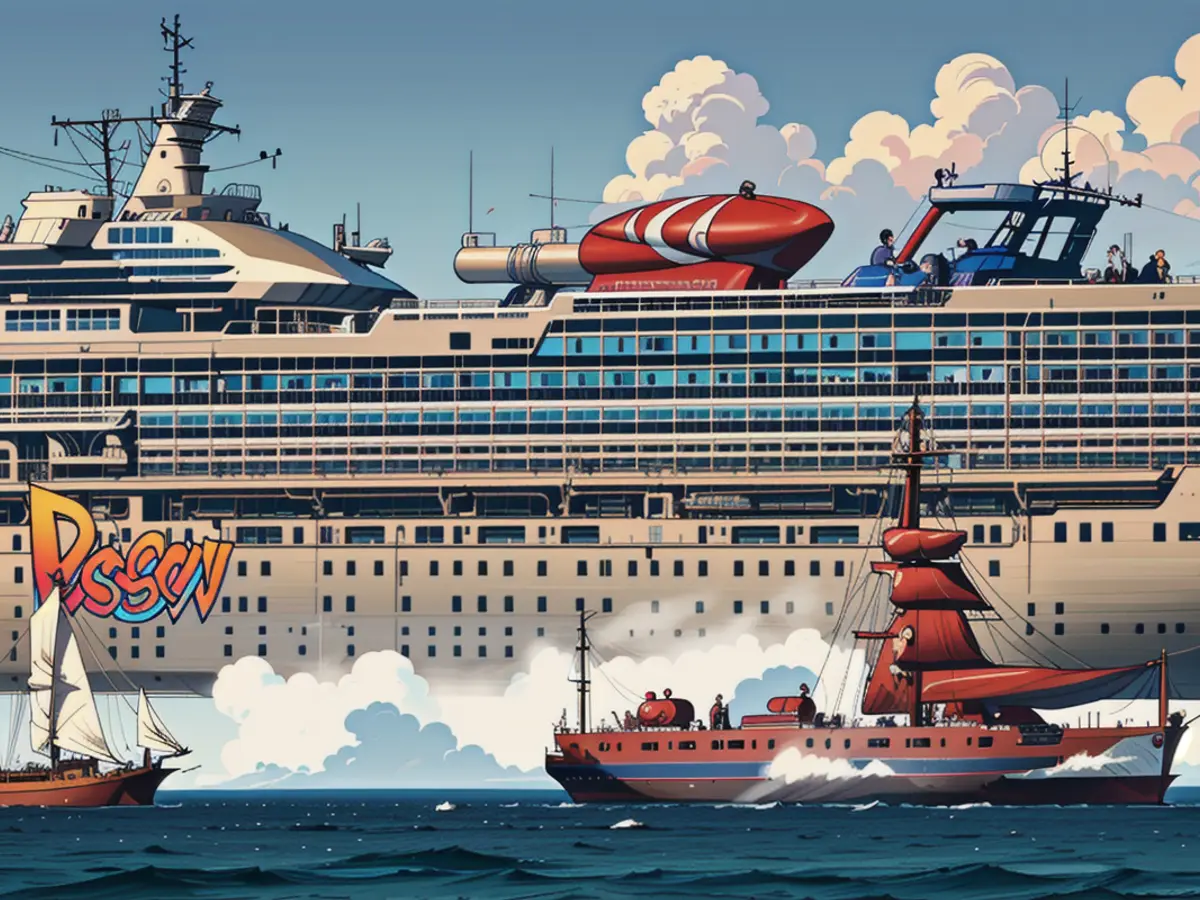Life on the High Seas: The Role of a Cruise Ship Doctor
Cruising is a popular vacation choice, offering a blend of seclusion and luxury. But what happens when merrymaking is sidetracked by illness or accident during your journey? Millions of travelers might revel in the distinguished isolation, but what if misfortune strikes hundreds of miles away from land's bustling healthcare facilities?
Broken limbs or heart attacks can taint those picturesque vistas, and you may not be so enchanted to be remote when the unexpected happens aboard. In other words, the ideal getaway can quickly turn into a nightmare, and knowing how a cruise ship's medical center operates could be the difference between a pleasurable ocean adventure and forlorn despair.

A doctor's life aboard isn't comparable to their land-based counterparts, claims Dr. Aleksandar Durovic - a veteran of twenty years working in oceanic medical services. "The Love Boat" might seem like an endless round of dinners and cocktails, he says, but the reality is far from it. "It's a mission full of stress and responsibility." The medical side can be incredibly demanding, and the focus is primarily on emergency medicine, similar to an ER, as doctors work tirelessly to cater to passengers' unpredictable health issues.

The staff selection is of utmost importance for ensuring qualified responders in all medical emergencies, explains Amy White, the director of medical operations for Vikand, a company that offers medical services for over 150 cruise ships spanning 33 cruise lines. The demands of the job require a three-year background in emergency medicine, and since each vessel can be home to a plethora of medical situations, being a seasoned professional is non-negotiable.

The testament to a doctor's bedside manner also plays a significant role in their ability to serve aboard. "Guests are always right," remarks White, discussing the importance of hospitality. Expanding on the humble beginnings of her journey into seaside medicine, she was lured by two like-minded colleagues who shared their wealth of experiences working aboard. Initially, she joined Royal Caribbean as a nurse, eventually working her way up to the role of Fleet Nurse before transitioning to Vikand's Medical Operations Manager.

The medical team's preparation is in accordance with the American College of Emergency Physicians (ACEP) guidelines, which dictate fundamental requirements for cruise lines, such as having at least one 24/7 medical professional available, two medical rooms – one dedicated to intensive care treatment – and the ability to monitor vital signs. Despite these mandates, company policies may dictate additional onboard staff for larger ships. White likens the medical centers aboard to a "small community urgent care or emergency department," with resources including treatment areas, intensive care units, ventilators, cardiac monitoring equipment, and defibrillators.

In the future, ultrasound capabilities will be mandatory for CLIA members' vessels, further equipping medical staff to navigate the unpredictable. Large cruise ships will also have morgues onboard, ensuring proper handling of fatalities when they inevitably occur.

The onboard medical team is supported by shoreside staff, including doctors with extensive emergency medicine expertise, who offer consultation and assistance when required. The vast ocean may spell isolation for the medical team, but they are not sentenced to a solitary struggle.
In Durovic's case, after years in his native Montenegro and stints with both MSC and Carnival, he took on a unique challenge: serving as the sole doctor aboard the three-year world-circumnavigating Villa Vie Odyssey. For his part, White transitioned from her native South Africa's nursing departments to Royal Caribbean's ships before ascending the ranks to her current role with Vikand.
Regardless of the cruise's length, the medical setup generally follows these guidelines to ensure passengers receive the medical care they need when the unexpected eventuates.
So, what happens if an accident disrupts your trip or a sudden ailment threatens to cast a shadow upon your otherwise perfect vacation? Tread carefully, and ensure you have adequate insurance coverage. Remember, while the risk of falling ill or injuring yourself is relatively low, it's essential to prepare for the worst-case scenario. Realize that while the medical care may not be as state-of-the-art as a hospital on land, aboard, you'll find professionals trained in handling emergencies, providing a welcome sense of security as you float across boundless seas.
In the event of an accident or sudden illness during your cruise, the onboard medical team, equipped with resources like treatment areas, intensive care units, and defibrillators, is prepared to respond. To ensure you're adequately covered, it's crucial to have appropriate insurance coverage, as the medical care aboard, while not as advanced as a hospital on land, is provided by professionals trained in handling emergencies, providing a sense of security during your voyage.






